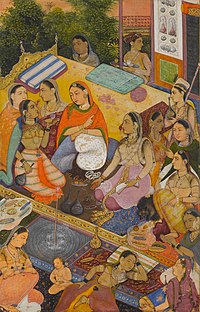
Are Women Being Treated Equally Today In Comparison To The Previous Centuries?

Women have been treated as objects, commodities, or mere baby-producing machines. She has always been asked to surrender herself completely to a man and devote her entire life to serving him. For ages, the length of her clothes and not her abilities have determined her character. Hence, it is the need of the hour that women are given equal rights and opportunities as a society that can only progress when women have the chance to make a mark.
Let’s go back in time. A girl is born into a traditional family. She tells her parents to admit her to school along with her brothers. Her parents refuse to do so telling her that she should focus on learning household chores, as ultimately, she has to get married. At the age of five, she married an 80-year-old man and her parents have given a dowry of 60 lakhs. After four years, her husband dies. She is forced to become a Sati and is burnt on her husband’s pyre. This was the situation of so many girls in our country.
They were not treated as normal human beings. That is the reason why, many pioneers like Raja Ram Mohan Roy, Dayanand Saraswati, Ishwar Chandra Vidyasagar, and many more great men have abolished Sati, made sure that the girls were educated, and have brought in so many rights that women could even think of before.
Although Sati has been almost abolished, social evils like female infanticide and child marriage are still prevalent, especially in rural areas. Every individual, be it a man or a woman, has the right to live, and this right is guaranteed under Article 21 of the Indian constitution. Sex determination of a fetus is regarded as a crime in India. Section 5(2) of the Hindu Marriage Act, 1955 clearly states that a girl needs to be at least eighteen in order to tie the knot. Also, Section 12 of the Hindu Marriage Act, of 1955 says that consent for marriage must be a free one and not obtained through coercion. Article 19(1)(g) states that an individual can enter into a profession of his/her choice as long as it’s permitted by the law of the land. Above all, Article 14 states that every individual irrespective of everything is equal and Article 15 prohibits any kind of discrimination on the basis of gender.
The Shayara Bano case is so unfortunate as a man can just utter the word “Talaq” a few times and divorced a woman, whereas a woman has no say in that matter. For years, women who are in the age group of 15-45 years were not allowed to enter the Sabarimala temple. After a long fight, the Supreme Court finally held that there cannot be any discrimination on the basis of the physical state of the body. Nergesh Mirza, an air hostess, was terminated from her job when she got pregnant. The Supreme Court again held the decision in her favor stating that there cannot be discrimination based on the physical state of the body and such discrimination strictly violates Article 14 of the Indian Constitution.
Although there have been laws drafted and judgments pronounced in favor of women, and women are being given equal rights today as they were in the past, the flame of discrimination and patriarchy is still alive. Women are not offered equal pay in many places and are not given administrative positions no matter how proficient they are with their work. Laws can be effectively implemented only if society changes its mindset and starts placing both women and men on the same pedestal. That is the day when all these problems that have been prevalent for centuries will eradicate forever.







